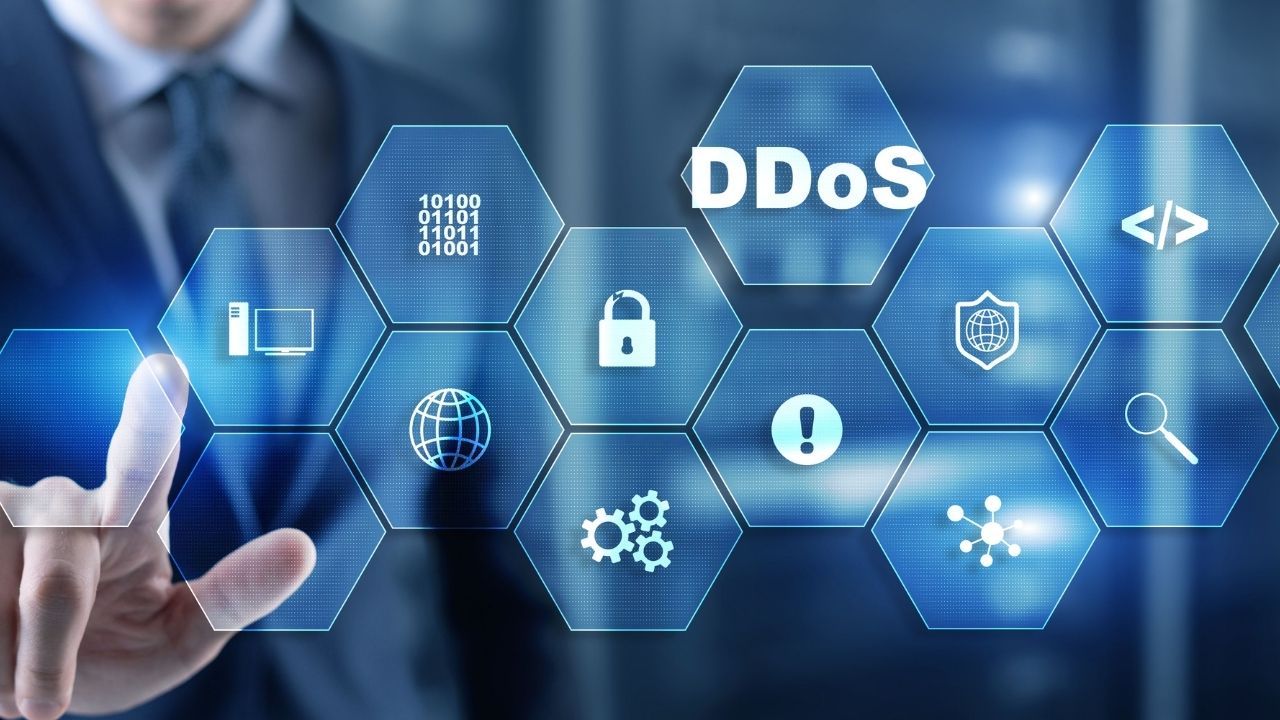Tech
Why your website should always have DDoS protection

Over the past decade, websites have become increasingly important for businesses. In fact, businesses without a website often find it difficult to grow outside of their local customers. A website can help businesses reach a greater demographic and number of customers. In some cases, websites can go global and reach millions of customers around the world.
Since a website will be dealing with such a large number of customers, its security becomes a prime necessity. A website that isn’t safe to use will almost certainly be a target for cyberattacks. Cyberattacks can cripple websites and make business websites vulnerable and unsafe for customers.
Maintaining a safe website is very important. Many businesses have lost customers because they weren’t able to maintain the security of their websites. There are various ways to create a safe website. The easiest is to comply with HTTPS. However, most modern websites automatically comply with these rules.
HTTPS is not perfect. It does make your website secure, but your website is still vulnerable to cyber-attacks. One of these attacks is DDoS. DDoS attacks can completely cripple your website and put your user’s sensitive information at risk. In this article, we will discuss what DDoS attacks are and how DDoS protection will help you protect your website.
What is a DDoS attack?
A Distributed Denial of Service attack is a malicious attack that attempts to disrupt the normal working of a server by overwhelming it. In simple terms, a DDoS attack aims to cripple your website’s server and overwhelm it by flooding it with fake Internet traffic sent across from hacked devices. These devices are unsuspecting computers with botnets installed that can send out thousands of server requests every second with the aim to cripple your perfectly fine website.
How do DDoS attacks work?
To pull off a DDoS attack, the attacker infects internet-connected devices with malware that can remotely be controlled by them. They then use these malware to send multiple requests to a particular website’s server, slowing it down and, in severe cases crippling the website.
Since DDoS attacks are carried out through malware on random remote computers, it is near impossible to locate the source of these attacks as they disguise themselves as normal traffic. However, there are some ways you can detect if you are being targeted by DDoS attacks.
The simplest way is through traffic analytics tools. These are some telltale signs that you are being targeted:
- Abnormal traffic surge
- A lot of traffic originating from the same IP address or range
- Unexplained traffic surges on particular web pages
- Unnatural traffic patterns; for example, traffic surges every 15 minutes
Protecting against DDoS attacks
DDoS protection is very important for a business website. Business websites often deal with a lot of sensitive information from their customers. If afflicted with a DDoS attack, a website can be weakened and can even stop working.
The main goal of DDoS attacks is to cripple your user’s access. It is really harmful to your customers’ user experience. When your website server gets hit with a DDoS, it is also vulnerable to other attacks, and DDoS is often the entry point for other incriminating attacks that can be used to steal user information.
It is crucial that business websites are protected against DDoS attacks. DDoS attacks also target the mission-critical business applications that your organization relies on to manage daily operations, such as email, salesforce automation, CRM, and many others. Additionally, other industries, such as manufacturing, pharma and healthcare, have internal web properties that the supply chain, and other business partners rely on for daily business operations.
Here’s how you can protect against DDoS attacks:
- Know your audience: Use traffic analysis tools and learn the traffic patterns around your website. Know where your visitors are from and know what times they usually use your website.
- Have a cybersecurity team in place: Keep a team ready to respond to DDoS or other cyber attacks to protect your website. Treat DDoS attacks as catastrophic incidents and be prepared for them at all times.
- Security measures: Restrict access to your servers for everyone except the people working with them. Even on your website, keep access restricted to non-administrators.
- Use CDNs: For business websites with worldwide clients, a CDN is a great way to mitigate a DDoS attack. CDNs cache your websites on localized servers, limiting damage to the geographical source of DDoS attacks and protecting your main server automatically.
- Understand the warning signs: DDoS attacks have certain symptoms. The erratic traffic pattern, network slowdown, increased load times, unexplained shutdown, etc. are dead giveaways for DDoS attacks. Use these warning signs in case you are being attacked and shut down the source asap.
If you are a small business, try creating your website with a reputable website building software. Website building software often have built-in DDoS security measures and CDNs that automatically protect your website from such cyber attacks.
The good news is that DDoS attacks form a significant part of all cyber attacks. Almost 60% of cyber attacks are usually attempted Distributed Denial of service attacks meaning that your cybersecurity becomes significantly easier if you can protect against DDoS attacks.
Summing up
DDoS attacks are a significant threat for a business website. It is even more significant if your business is in the financial industry. Between 2017 and 2019, 40% of all financial institutions were hit by DDoS attacks.
They survived because they had planned DDoS protection as a part of their disaster mitigation planning. The second most common targets for DDoS attacks are online eCommerce stores and more. Both financial and eCommerce websites tend to deal with a customer’s critical financial information.
An unprotected website would crumple under a powerful DDoS attack and might end up losing crucial customer data. Protect your website with DDoS and keep your customer’s information safe and never lose your website traffic. Get on with it today!
Tech
My Main AI Turns Complex Workflows into Simple, Voice-Driven Conversations

By: Chelsie Carvajal
Managing modern workflows often means juggling dashboards, documents, and long email threads before a single task is complete. My Main AI Inc, an AI technology platform that spans text, image, voice, and video, has built a system where many of those steps can be handled through spoken or written prompts instead of manual clicks.
Turning Tasks Into Conversations
My Main AI groups several automation tools around a voice and chat layer so users can move through work by giving instructions rather than configuring each step. The platform lists AI Web Chat, AI Realtime Voice Chat, AI Speech‑to‑Text Pro, and AI Text‑to‑Speech engines from providers such as Lemonfox, Speechify, and IBM Watson, creating a loop between spoken input and generated output.
Speech‑to‑text tools support accurate transcription of audio content in multiple languages, with options to translate those recordings into English. That capability gives businesses a way to record meetings, calls, or field conversations, then convert the results into text that can be summarized, edited, and turned into documents or scripts. Text‑to‑speech tools, including multi‑voice synthesis with up to 20 voices and SSML controls, take written content in the other direction, producing voiceovers for training, marketing, and support material.
Chat assistants extend the same pattern to files and websites. My Main AI lists AI Chat PDF, AI Chat CSV, and AI Web Chat, which allow users to ask questions of documents or site content through natural language prompts. Instead of sorting through long reports, a user can query a file, receive concise answers, and then send follow‑up requests to generate emails, briefs, or summaries in the same environment.
From Content Pipelines to Voice‑Led Workflows
The company reports that its platform connects to more than 100 models from OpenAI, Anthropic, Google Gemini, xAI, Amazon Bedrock and Nova, Perplexity, DeepSeek, Flux, Nano Banana, Google Veo, and Stable Diffusion 3.5 Flash. Public materials state that these models support text, image, voice, and video generation in more than 53 languages, giving the voice‑driven tools reach across several regions and markets.
Content creation sits at the center of many of these workflows. My Main AI offers modules for blog posts, email campaigns, ad copy, social captions, video scripts, and structured frameworks such as AIDA, PAS, BAB, and PPPP. A user can dictate key points or paste a brief into the chat, receive draft text, ask the assistant to adjust tone or length, and then pass the result into voice synthesis to create a narrated version.
Visual tools fit into the same flow. DALL·E 3 HD, Stable Image Ultra, and an AI Photo Studio support image creation, product mock‑ups, background changes, and multiple variations from a single upload. AI Image to Video and text‑to‑video connections with engines such as Sora and Google Veo, alongside an AI Avatar feature labeled “coming soon,” make it possible to turn a spoken or typed brief into images, then into short clips that accompany the newly generated audio.
Why Businesses See Conversation as Infrastructure
Company data shared with partners cites more than 77,000 customers worldwide, annual revenue near 3 million dollars, and monthly revenue growth around 250,000 dollars, driven largely by subscription sales. The 49‑dollar plan is described as the best‑selling tier, with My Main AI presenting it as the entry point to the broader suite of conversational and automation tools.
Business‑oriented features show how these voice‑driven workflows connect to operations. The platform lists payment gateways such as AWDpay and Coinremitter, integrations with Stripe, Xero, HubSpot, and Mailchimp, and tools for SEO, finance analytics, dynamic pricing, wallet systems, and referrals. A manager can ask a chat assistant to pull figures, draft a report, and prepare customer messages, then move directly into sending campaigns or reviewing payments through linked services.
Company communications describe ongoing work on proprietary models, expanded training flows from text, PDFs, and URLs, and deeper tools for chat, analytics, and video. That roadmap suggests that My Main AI views conversation—spoken or typed—as a central control surface for complex workflows, with automation stepping in behind the scenes so users can focus on clear instructions rather than manual configuration.
-

 Tech5 years ago
Tech5 years agoEffuel Reviews (2021) – Effuel ECO OBD2 Saves Fuel, and Reduce Gas Cost? Effuel Customer Reviews
-

 Tech6 years ago
Tech6 years agoBosch Power Tools India Launches ‘Cordless Matlab Bosch’ Campaign to Demonstrate the Power of Cordless
-

 Lifestyle7 years ago
Lifestyle7 years agoCatholic Cases App brings Church’s Moral Teachings to Androids and iPhones
-

 Lifestyle5 years ago
Lifestyle5 years agoEast Side Hype x Billionaire Boys Club. Hottest New Streetwear Releases in Utah.
-

 Tech7 years ago
Tech7 years agoCloud Buyers & Investors to Profit in the Future
-

 Lifestyle5 years ago
Lifestyle5 years agoThe Midas of Cosmetic Dermatology: Dr. Simon Ourian
-

 Health7 years ago
Health7 years agoCBDistillery Review: Is it a scam?
-

 Entertainment7 years ago
Entertainment7 years agoAvengers Endgame now Available on 123Movies for Download & Streaming for Free
